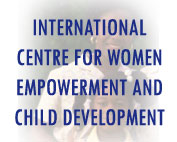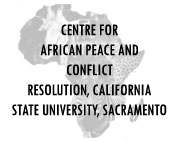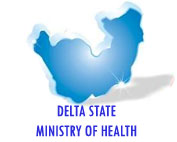IMPACT ON THE HEALTH OF THE PUBLIC
PHIRC RESEARCH NETWORK
PHIRC Research Network submitted 5 abstracts from their research work on HIV/AIDS to the 17th International AIDS Conference (AIDS 2008) in Mexico. 2 were accepted for poster presentation while 2 were published in the abstract CD-ROM. Under the auspices of PHIRC a Post-Mexico AIDS 2008 event was organised for members of the research network and other stakeholders on HIV/AIDS in Asaba to share lessons from the experience. The Executive Director and another member of the research network also presented a paper on “School Health Services and Millennium Development Goals” during the 4th International On-line Medical Conference in March 2011, which has also been published.
NIGERIAN HEALTH SOLUTIONS NETWORK
On 6th August, 2011, fifty-five people signed up for the Asaba Declaration which is a call for people to join the Nigerian Health Solutions Network by making available their time and skills, money and/or material resources and embarking on an “Adopt Your Own Village (AYOV)” project. The network was initiated by PHIRC, in collaboration with the Centre for African Peace and Conflict Resolution, California State University, Sacramento. On the 6 month anniversary of the launching of the network, three individuals and two organisations had carried out projects in their communities and sent in reports. Our target is to reach 10,000 communities across Nigeria by 2015.
DISTANCE LEARNING
PHIRC has commenced free distance learning (e-learning) programmes for health and NGO workers in courses such as proposal writing and research methodology. This is a low-cost initiative for accelerating capacity building among highly motivated individuals in spite of the distance.
YOUTH EMPOWERMENT
PHIRC programmes on youth empowerment commenced with the opening of a youth centre in September 2005. A Qualitative Research Project on Improving Parent Child Communication on Adolescent Reproductive Health in 5 secondary schools in Asaba was conducted in 2005 and findings published. A Conference on Adolescent Reproductive Health for the Niger Delta Region was organised by PHIRC at Port Harcourt in March 2006 for participants from the Niger Delta States. The Book of Proceedings of the Conference was produced and launched in June 2007 as part of the celebration of PHIRC 5th Anniversary. The youth club of the Public Health impact Research Centre (PHIRC) was inaugurated on 11th February, 2007 as a result of the need to crystallize the parent organization’s Adolescent and Youth Empowerment Programmes into youth-led programmes. It is made up of young persons in the age bracket of 15 – 30 years for whom registration is free. The mission is to empower young people especially in the Niger Delta educationally and economically to be able to make a positive difference in their own lives and their community as well as to become independent and resourceful adults. Through the youth club a mentorship programme was established whereby we employ young people, give them a small stipend and train them in many areas such as computer literacy, use of the internet, programme management, reproductive health etc in a flexible manner that can allow them to still pursue their educational career. The youth club also has skype meetings to ensure that members are kept abreast of activities despite their location. Various HIV/AIDS enlightenment campaigns have been organised for in-school students at:
-
-
-
-
-
Girls Secondary School Awkuzu, Anambra State in May 2007
-
-
-
-
-
-
-
-
-
Secondary school students in Aniocha North Local Government Area, Delta State in June 2008
-
-
-
-
-
-
-
-
-
Secondary School students in Asari Toru Local Government Area, Rivers State in November 2008
-
-
-
-
-
-
-
-
-
James Welch Grammar School at Emevor, Delta State in January 2010
-
-
-
-
-
-
-
-
-
Our Lady Model High School Effurun, Delta State in November 2011.
-
-
-
-
-
-
-
-
-
Peer Educators Training Workshop for Female Hawkers in Motor Parks was organised by PHIRC in Sapele in December, 2007, and in Issele-Uku in September 2008 supported by UNFPA and Delta State Ministry of Health.
-
-
-
-





